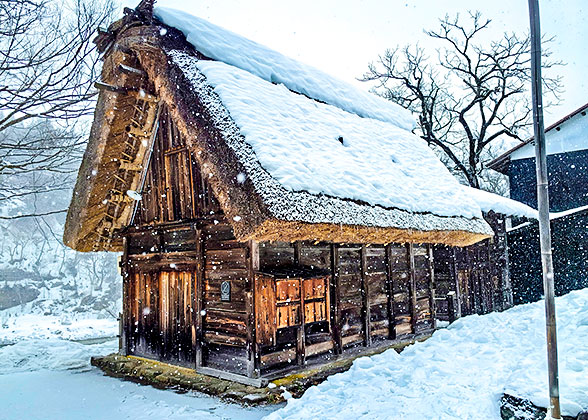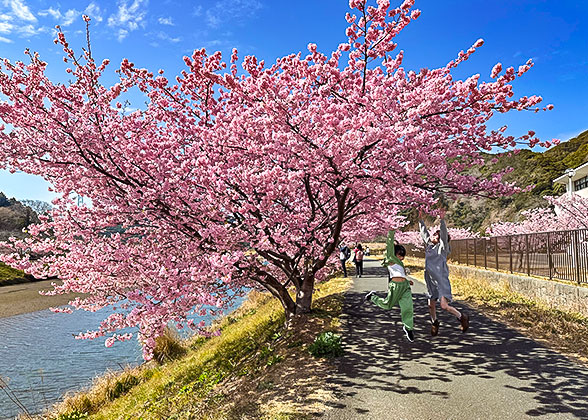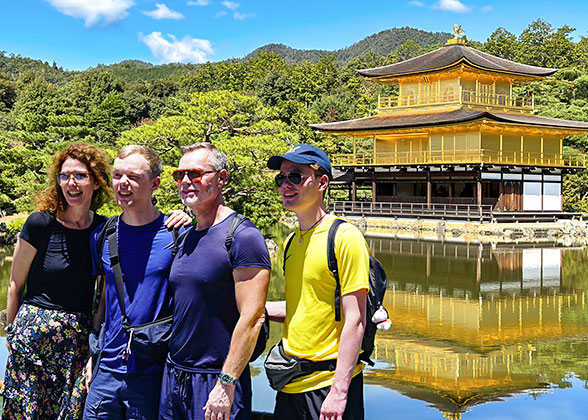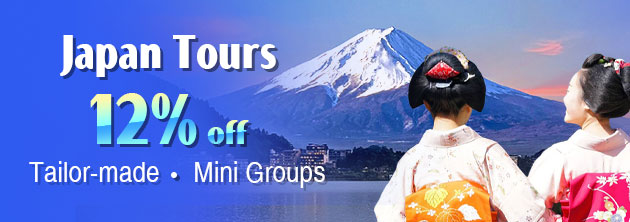Hakata Weather in August
1. Hakata weather in August is extremely sultry and humid with sea winds occasionally blowing up.
2. It rains a lot, and heavy showers are common.
3. August is the high season, characterized by more tourists and higher travel costs.
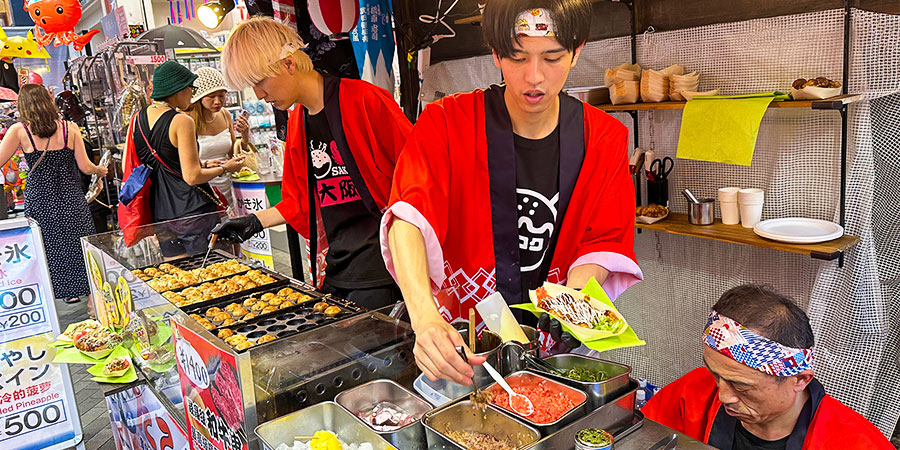
Streets Snacks in Summer Festival
|
The Hottest Month
Average Temperature: 24 - 32℃ (75.2 - 89.6℉)August is the last month of summer in Hakata, but the hottest period throughout the year. In specific, maximum temperatures often remain at 32-34℃ (89.6-93.2℉), and according to meteorological data, highs in August have been going up affected by global warming and ones exceeding 35℃ (95℉) might be more common. The lows hover around 25 degrees Celsius (77 degrees Fahrenheit) or above, meaning that the early mornings and nights are more suitable for outdoor sightseeing than noon time. Close to the port, Hakata receives sea winds at times, bringing you a touch of coolness.
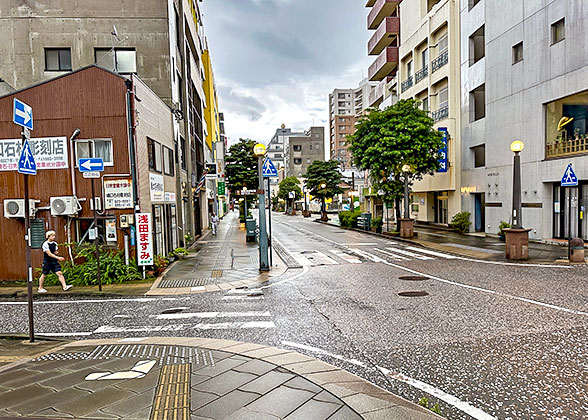
Rainy Scene in August
|
Rain a Lot
Although the rainy season has been over, the precipitation of Hakata is still high in August, approximately 208mm (8.2 in). There are 13 rainy days, usually seeing heavy rain but with short duration.
High temperatures and high humidity of 73% make your feels-like temperature higher and the body more prone to sweating.
Daylight Hours/ Sunshine Hours
The length of daytime is 13 hours on average when the sunrise and sunset take place at around 5:31 - 5:53 and 18:45 - 19:19 respectively. As sunny days are more frequent, the sun averagely shines for 6 hours each day in August. The long duration of daylight and sunshine hours provide adequate travel time, suitable for all age groups, especially those families having children and the elderly.
The average UV Index is as high as 10, so effective sun protection should be taken.
Is it good to visit Hakata in August?
No, you are not recommended to come here during this period. The hot and humid weather conditions make people uncomfortable and even more likely to get heatstroke. Plus, students are on summer vacation and locals usually take a long holiday in middle August due to Oben Festival, so there are large numbers of tourists, causing an increase in the prices of hotels and airline tickets, packed scenic spots and long queuing time.
If you can only visit Hakata in this time, the following information will be helpful for you.
What to wear in Hakata in August?
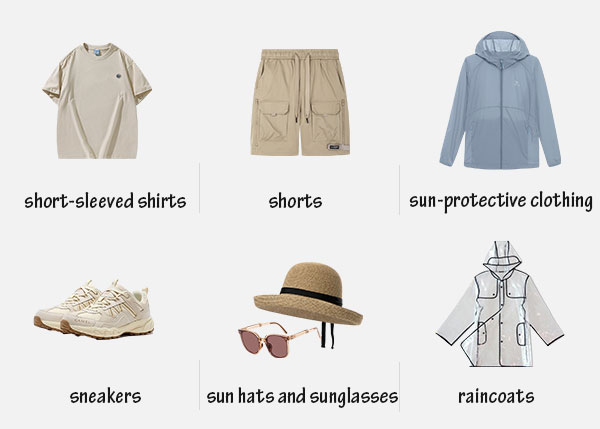
|
![]() Footwear: Pack breathable and comfortable sneakers that are lightweight and suitable for long walks. Bring along waterproof shoe covers in case of rain.
Footwear: Pack breathable and comfortable sneakers that are lightweight and suitable for long walks. Bring along waterproof shoe covers in case of rain.
![]() Others:
Others:
1. UV-protective items like sunhats, sunglasses, parasols are essential and you are advised to apply sunblock every two or three hours.
2. Pack a raincoat or an umbrella for potential showers.
3. Heatstroke protection measures are indispensable. For example, bring along a water bottle and drink more water, or keep a cool towel handy.
4. Mosquitoes are active in the early morning and at night, so don’t forget to spray mosquito repellent beforehand.
Travel Highlights of Hakata in August
Hakata Summer Festival
Hakata Summer Festival is usually held from early to middle August at JR Hakata Station Plaza, lasting for one or two weeks. It provides a host of activities: Bon Odori (traditional Japanese dance), food stalls selling local tasty cuisines, mini games like shooting or goldfish catching and brilliant stage performances. If you plan to visit Hakata in this time of 2026, don’t miss such a wonderful feast!Mitama Festival
Gokoku Shrine hosts Mitama Festival yearly during Oben Festival, when more than 6,000 illuminated lanterns create dreamlike night scenery, along with yatai foods, taiko drum performances and funny games.
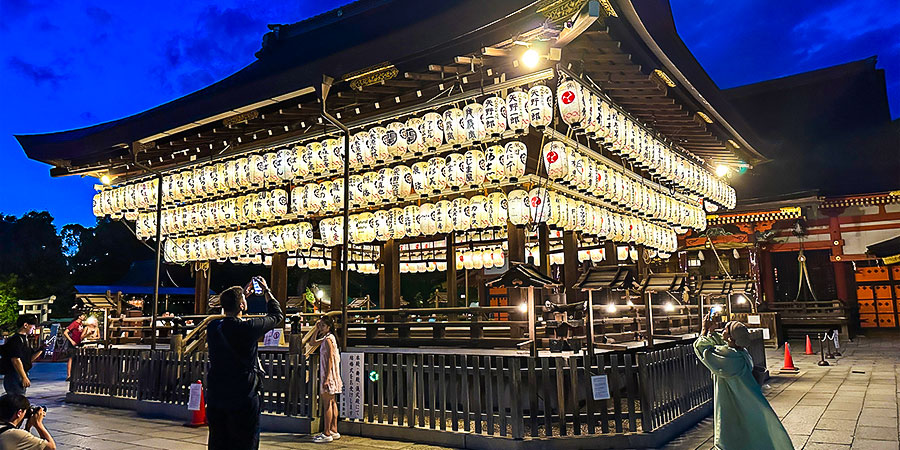
Lighting Lanterns in Mitama Festival
|
Travel Advice for Hakata in August
1. August is the peak season in Hakata, so if you plan to go, early reservation is advised.2. This month, Hakata may experience typhoons with strong winds and heavy rain, and in severe cases causing flight cancellation. Thus, check local weather forecast frequently before your departure and keep a flexible travel schedule.
3. Because summer clothes are often exposed, it’s better to add sun-protective clothing on top when you enter Sumiyoshi Shrine or Kushida Shrine.
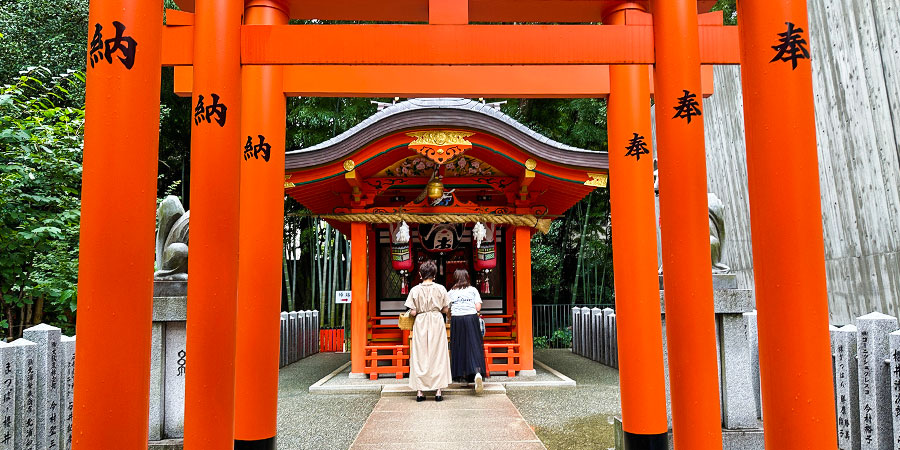
Sumiyoshi Shrine
|

